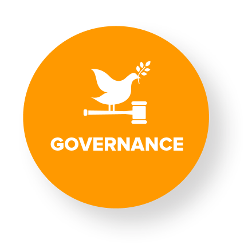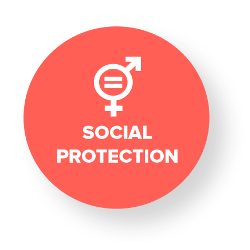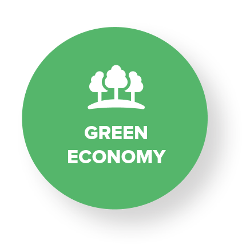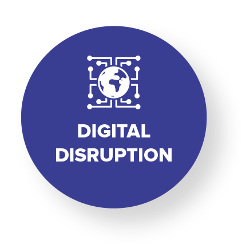Beyond Recovery: Towards 2030
Beyond Recovery: Towards 2030
Our Evolving Response
Iran is one of the developing countries most impacted by the COVID-19 pandemic. Within 15 days of the first recorded case, confirmed COVID-19 cases had already been identified in all 31 provinces. The country’s health system is under pressure because of the economic sanctions and the COVID-19 pandemic outbreak has exacerbated the situation. Through the increase in the capacity for local production of PPEs as well as support from 30 countries and international organizations including the UN, Iran is implementing measures to control the number of casualties and fight the pandemic. However, the impact has gone beyond the public health and humanitarian domains and has become a threat to human development and progress towards the Sustainable Development Goals (SDGs).
Working at the heart of the United Nations family and in close coordination with the World Health Organization (WHO) UNDP responded to the COVID19 pandemic by supporting the UN Preparedness and Response Plan (CPRP) on the procurement of Personal Protective Equipment (PPEs) and also supporting advocacy using WHO guidelines and messaging. UNDP also assumed the internal lead (COVID-19 Coordinator) providing support to the entire UN team on operational issues. UNDP is working hand-in-hand with the UN Country Team and with our sister development entities in the Pro-Health coordination group (WHO, UNICEF, UNAIDS, UNFPA) by supporting an integrated UN response to COVID-19.
Health system support: UNDP is supporting Iran to strengthen their health systems in the face of COVID-19 and pre-COVID, including procuring urgently needed health and medical supplies, strengthening health infrastructure, managing health waste, and ensuring salary payments to health workers. UNDP is working with the Municipality of Tehran on COVID-19 waste management and protocols.
Socio-Economic Response and Recovery: UNDP from the first weeks in February 2019 already started working to understand and map the social, economic and political impacts of the crisis, identifying ways to mitigate them with sustainable, resilient and rights-based solutions preparing for an early-recovery. UNDP has produced with the UN Resident Coordinator Office a country-specific assessment of the COVID-19 economic impact, policy options to contain it, and approaches to protect the most vulnerable.
Working with the UN: A COVID-19 Integrated Approach – We are building on new ways of working in crisis contexts, including leading UN’s work to promote greater collaboration between humanitarian, development actors. We proposed improved programme measures for combined social protection and employment generation to pave the way for longer-term sustainable recovery; going for scale through smarter targeting, being gender sensitive and adopting digital age technologies. UNDP led the development of a UN Socio-Economic Recovery Programme offer in coordination with UNICEF, a bold and ambitions plan that focuses on building back better with impact and scale, so that we can as a UN team make a difference.
UNDP's Offer 2.0

Health crisis support and systems strengthening: UNDP is supporting the Ministry of Health (MOH) by undertaking emergency international procurement of PPEs and medicines. UNDP is also supporting the procurement of medicine to combat non-communicable diseases to help ease the existing pressures on the health system.
UNDP is leveraging its longstanding partnership with the WHO, and as the Principal Recipient for the Global Fund to fight AIDS, Tuberculosis and Malaria (GF) and UNAIDS to assist the health response working with the Center for Disease Control and Prevention and other organizations.
UNDP is working with the Municipality of Tehran on a new COVID-19 waste management standards and protocols.
UNDP has launched an early recovery programme based bottom up approaches for planning, priority setting and integration in the areas agreed (deprived areas). Addressing gender gaps while ensuring continuity of services to support women’s empowerment.
UNDP as part of the UN Recovery is supporting the government to create fiscal space (SMART indicators), and to develop inclusive, green economic recovery strategies.
Strengthening social capital – leveraging a social mobilization and micro-credit scheme, upscaling a successful proven concept, with low overhead costs of circa $1,000 per enterprise established, and quick one to one-half year turnaround, the initiative supports the Government intention to achieve over one million jobs in rural areas – including accompanying required changes in planning frameworks and funding allocations. The basic mechanisms of the best practice “social mobilisation and micro-credit” technique are in place nationally and to an extent institutionalized, with over 300,000 persons already affected (including establishment of a network of development facilitators) – thereby enabling ease of inception, implementation and results. The programme will enable up to 50,000 vulnerable households in receiving support and in parallel the creation of 50,000 jobs and enterprise possibilities. This low overhead cost approach will require a total of $50 million for the purpose encompassing the $9 million for up-scaled social protection – supported through additional UN programme funding and with joint Government and UN effort.

Social protection, including cash transfers, universal health coverage and access to other basic services, will be central to uprooting the inequalities that permeated societies before COVID-19, and that are starkly visible today.
UNDP is supporting the Government in socio-economic recovery by undertaking a rapid economic impact assessment of COVID-19 on Micro, Small & Medium Enterprises (MSME) and vulnerable households (with UNICEF and UNFPA).
Beyond this, UNDP, together with UNICEF, is supporting the Government in analysis and improved conditional cash transfers, including adjustments to the Universal Basic Income; supporting a single registry and updating the Multidimensional Poverty Index (MPI) index as well as better targeting of social programmes and protection measures that are inclusive, reaching domestic and informal workers, people with disabilities, women migrants and other groups.

This is the moment to restore balance between people and planet, designing and de-risking nature-based solutions as part of a new social safety net for the world, encouraging sustainable public-private partnerships such as in ecotourism and green transport systems, transforming agriculture from a carbon contributor to a carbon sink, and ensuring integrated thinking and action with the health sector to tackle air pollution that kills seven million people each year.
In Iran, UNDP is supporting highly impacted Micro-, Small and Medium-sized Enterprises (MSMEs) to recover and build forward better, by supporting diversification of markets and green economy.
Energy efficiency and collaborating with the Municipality of Tehran: Iran is one of the most energy-intensive developing countries in the world. Buildings account for a considerable amount of energy consumption, urban ones in particular. UNDP aims to improve national capacities towards energy efficiency. UNDP’s decades of experience and expertise in the aforementioned fields can support the municipality in the software side of this project by making the bridge between different energy efficiency projects in building sector. These feats will be accomplished through different sets of activities, which can lead to the following subjectively categorized intended results:
- Energy efficiency of municipality buildings is mainstreamed in policy making, planning, budgeting and implementation frameworks of the Municipality of Tehran.
- Developing technical capacities and raising awareness on energy efficient buildings among intended target groups.
- A functioning prototype for increasing energy efficiency municipality buildings developed and up scaled through piloting of energy efficient scenarios.
- UNDP is supporting the central government and the Tehran Municipality to mainstream energy efficiency in policies, planning and budgeting, put efficient financial instruments in place, and create more implementation capacity through training the workforce and raising capacity among employees.

The surge in tele-schooling, tele-work- ing, tele-medicine, and digital payments during the COVID-19 crisis are just the tip of the iceberg in digital transformation. For many programme partners, e-governance support is a prerequisite to respond at speed and at scale.
UNDP is supporting the Government in their digital transformation by aiming at stabilizing and generating jobs for the vulnerable groups affected by the COVID-19 pandemic in local / rural areas on one side, and on the other side to improve the livelihoods and quality of life of the vulnerable households based on social indicators by strengthening the economic ecosystem through this digital programme.
UNDP Iran has recently partnered with an accelerator lab which has designed an online platform to create a chance for the most vulnerable groups to use e-tourism and recreation services with low prices (digital content consumers), while at the same time offering new opportunities to the affected MSMEs to improve their skills through innovation to stabilize their income (digital content producers). By integration between the above sides (digital content servers), in mid and long-term the economic growth of the local/rural areas will increase through more consumption, production and money turning. This programme is a complimentary to other UNDP Iran COVID-19 recovery initiatives, with a sustainable approach towards post-COVID timeframe.

 Locations
Locations